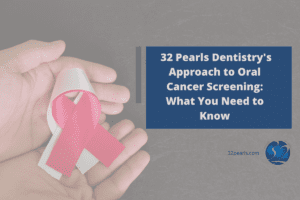Just about every time you visit your dentist, you hear the question: “Have you been flossing regularly?” You brush your teeth twice a day, so surely flossing can’t be that important. Or is it? The American Dental Association says that it is, your dentist says that it is, so what’s the story?
When you use your toothbrush, you brush the fronts and backs of your teeth, but the bristles can’t reach the sides of the teeth or the space between your teeth and gums. Using a fluoride toothpaste helps strengthen your teeth, but again, it can’t get in between your teeth on its own. Mouthwash helps destroy the bacteria that causes gum disease, but unless you have removed the plaque and bits of food that lodge where the toothbrush can’t reach, the mouthwash is only doing half its job.
Gingivitis is the start of gum disease that is preventable with proper brushing, flossing, and regular dental checkups. Inflammation and bleeding of the gums, however slight, is a definite sign that all is not well and gingivitis is beginning its ugly work on your gums. You might not notice any symptoms of gingivitis at first, and there may be no pain, either. But that little bit of red on your toothbrush is a warning sign: gingivitis has begun. The only thing that is going to go away if you ignore it is your teeth!
Plaque buildup doesn’t happen overnight. What at first is a sticky substance on the teeth and around the gums becomes hardened over time and can only be removed by the hygienist’s scraping the teeth. But you needn’t wait until your annual cleaning to get cleaner teeth. Flossing rids the teeth of plaque before it hardens in those hard to reach places where the toothbrush is just not as effective.
One very important study recorded in the Journal of Periodontology discovered that improvement in gum health and a reduction in the proportion of bacteria linked to periodontal disease directly correlate to slower progression in the thickness of the innermost two layers of the arterial wall. That means that cleaner teeth make for a healthier heart, and you may be able to prevent or slow the progression of heart disease by flossing on a regular basis (at least once per day).
Although there is currently no definitive evidence that periodontal disease causes heart disease, there is evidence that when the bacteria in the mouth is released into the bloodstream, it leads to hardening of the arteries, which then can lead to heart attack and stroke. Flossing can clean between teeth, enabling mouthwash and toothpaste to get into the areas the toothbrush misses, and thus kill bacteria that might lead to heart disease.
Think of it like painting a wall. You use a brush and a roller to achieve the best result. Using a toothbrush, fluoride toothpaste, floss, and mouthwash as the tools to clean your mouth will lead to an overall healthier you.





